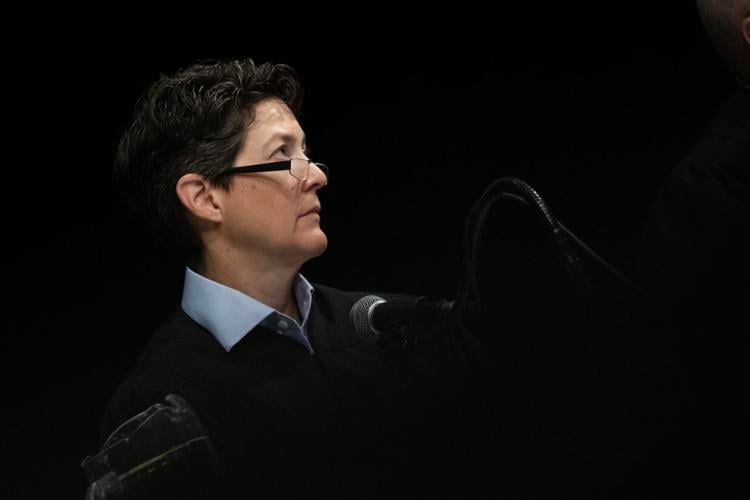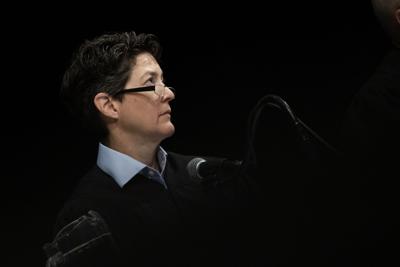The state Supreme Court agreed on Monday that a lawyer recently disbarred in the District of Columbia for mishandling client funds should also be disbarred in Colorado under the concept of reciprocal discipline.
In August 2022, the D.C. Court of Appeals found John F. Kennedy intentionally misappropriated his clients' money and barred him from practicing law. Attorney regulators in Colorado, where Kennedy was also licensed to practice, received notice of the outcome from their counterparts in D.C. and Colorado's presiding disciplinary judge similarly disbarred Kennedy.
Although Kennedy challenged the decision on various grounds, including the rule generally prohibiting discipline for conduct that is more than five years old, the Supreme Court concluded the rule did not apply to reciprocal discipline because the intent is not to relitigate attorney sanctions from other jurisdictions.
"Colorado reciprocal disciplinary proceedings simply do not revisit the evidence associated with the initial finding of misconduct," wrote Justice Monica M. Márquez in the April 22 opinion. "A reciprocal disciplinary hearing board will almost never have reason to re-hear evidence or arguments from the original proceeding. Nor should they."
She added that the point of reciprocal discipline is to prevent a lawyer disbarred in one state or court from simply hopping to another jurisdiction to continue practicing.

Attorneys representing Kennedy did not respond to an email seeking comment.
In the early 2000s, Kennedy and his law partner — who was also his wife — began representing a group of employees at a security company who alleged their employer committed wage theft. Eventually, Kennedy settled the case for $310,000 and retained two-thirds of that amount for attorney fees.
At the beginning of 2014, attorney regulators in D.C. notified Kennedy they were investigating his 2008 settlement. A committee recommended disbarment in 2019 and a professional responsibility board upheld that decision. A three-judge panel of the D.C. Court of Appeals provided a final review and agreed with the punishment.
The Court of Appeals determined Kennedy failed to obtain his clients' informed consent before settling the case and concealed the terms of the agreement from them. He also misappropriated the settlement money by taking a portion for attorney fees before his clients' authorization. The court agreed Kennedy's actions constituted "intentional misappropriation requiring disbarment."
Within three months, the Office of Attorney Regulation Counsel sought Kennedy's disbarment in Colorado based on the outcome of the D.C. proceedings. Presiding Disciplinary Judge Bryon M. Large rejected as "baseless" Kennedy's argument that it was unclear whether the D.C. Court of Appeals found he "intentionally" misappropriated client money. Large also disagreed that Colorado's rules meant Kennedy could not be disciplined more than five years after D.C. regulators discovered his misconduct.

Assistant Deputy Jefferson County Attorney Rebecca P. Klymkowsky presents her oral argument to the justices of the Colorado Supreme Court in the County of Jefferson v. Beverly Stickle case during Courts in the Community on Thursday, Oct. 26, 2023, at Gateway High School in Aurora, Colo. (Timothy Hurst/Denver Gazette)
Nathan Bruggeman, the lawyer for Kennedy, argued to the Supreme Court last fall that the conduct triggering Colorado's five-year limit is not another jurisdiction's notification that they have disciplined an attorney, but rather the original misconduct being investigated.
The Office of Attorney Regulation Counsel countered the time limit likely does not apply when reciprocal discipline is on the table, prompting Justice Richard L. Gabriel to ask if an attorney could be punished in Colorado 10 years after another state imposes discipline.
"That’s an interesting question, but that's not the facts of this case," responded attorney Jody M. McGuirk.
The Supreme Court's majority concluded the time limit, resembling a statute of limitations, does not apply to reciprocal discipline because such proceedings in Colorado are meant to recognize misconduct findings in other jurisdictions, not to relitigate them.
"We acknowledge that our holding today means ... no limitation period applies to reciprocal disciplinary proceedings," Márquez wrote. Nonetheless, she noted Colorado attorney regulators brought charges against Kennedy "with all due speed" following the D.C. decision.
The court rejected Kennedy's other grounds for appeal, concluding the D.C. Court of Appeals specifically agreed he acted intentionally when he mishandled the settlement money.
Justice William W. Hood III, writing separately for himself and Gabriel, agreed with the outcome but took issue with the majority's conclusion that the five-year time limit did not apply to reciprocal discipline.
"That said, I also disagree with Kennedy that the triggering 'conduct' under the rule of limitation is his wrongdoing in the originating jurisdiction," Hood added. Instead, Hood indicated he believed the five-year clock starts when another jurisdiction notifies Colorado it has imposed discipline — which was easily the case for Kennedy.
The case is In the Matter of Kennedy.





(0) comments
Welcome to the discussion.
Log In
Post a comment as Guest
Keep it Clean. Please avoid obscene, vulgar, lewd, racist or sexually-oriented language.
PLEASE TURN OFF YOUR CAPS LOCK.
Don't Threaten. Threats of harming another person will not be tolerated.
Be Truthful. Don't knowingly lie about anyone or anything.
Be Nice. No racism, sexism or any sort of -ism that is degrading to another person.
Be Proactive. Use the 'Report' link on each comment to let us know of abusive posts.
Share with Us. We'd love to hear eyewitness accounts, the history behind an article.